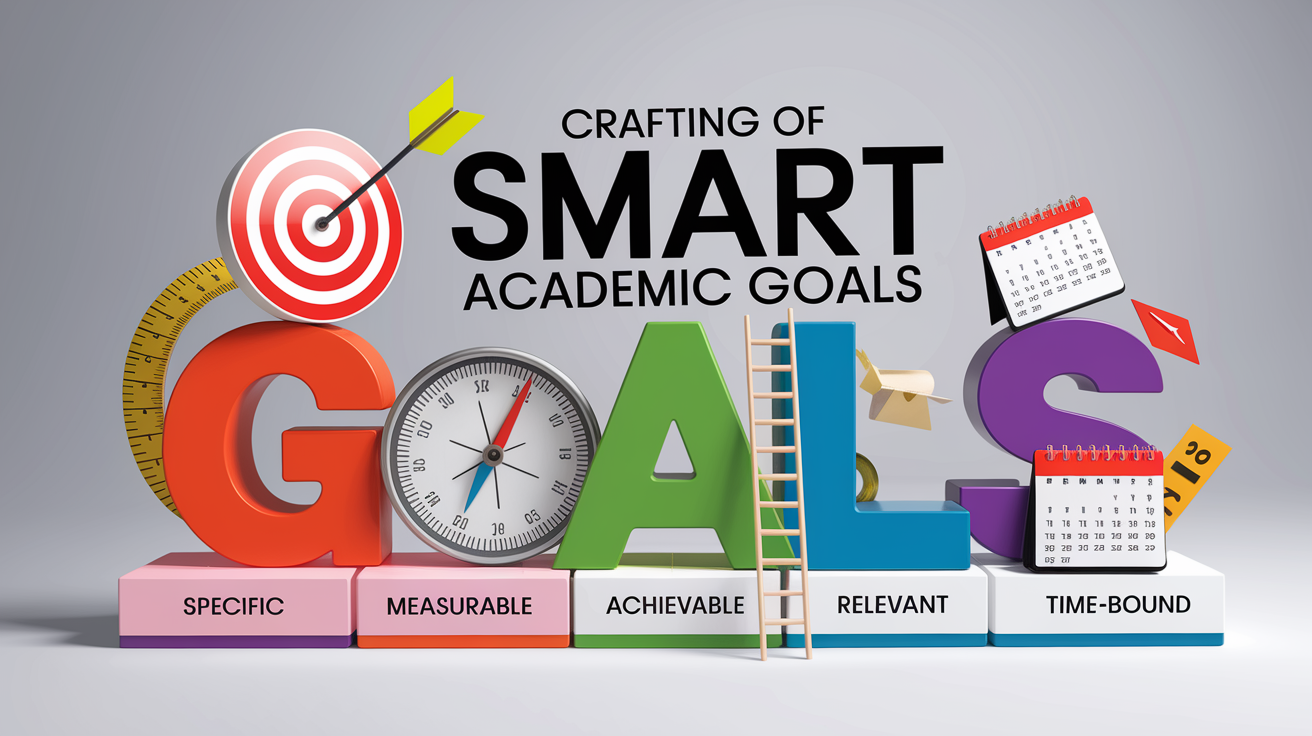Kickstart: Setting Student Goals with Purpose
Alright, class – let’s imagine you’re the captain of your own academic ship. Where you sail depends on the goals you set! According to research on student goal setting, having a destination (or a clear academic objective) makes the journey more engaging and rewarding. Instead of letting grades or standardized test scores define your course, you chart your own map toward personal growth, mastery, and curiosity.

When students actively participate in setting goals that matter to them, their motivation skyrockets. And guess what? Motivation is a big driver of academic success. Think of goal setting as planting seeds in your “learning garden” – the more thoughtfully you choose and tend them, the richer the harvest for your educational outcomes!
Crafting SMART Academic Goals
Now let’s sharpen our pencils – metaphorically! The key to turning a vague wish into a solid plan is to make it SMART: Specific, Measurable, Achievable, Relevant, and Time-bound. According to SMART goal strategies for students, these five letters act like your academic GPS, keeping you on course and helping you track progress without getting lost.

- Specific: Swap “I want to improve in math” with “I will master fractions and improve my quiz scores by 10%.”
- Measurable: Identify the performance metrics you’ll use – grades, completion rates, or milestone tracking.
- Achievable: Aim high but keep it realistic for your current skill level.
- Relevant: Align with your learning objectives or long-term academic planning.
- Time-bound: Deadlines bring focus! Set a date to assess your achievement.
Involving students in review conversations and using baseline data from sources like NWEA’s goal setting tips ensures the targets aren’t just wishful thinking—they’re tailored, actionable, and connected with real learning needs.
Tools and Techniques for Tracking Progress
You’ve set your goals – now it’s time for **progress monitoring**. This is where the magic happens, because tracking is the bridge between your plan and your results. As progress tracking experts point out, monitoring your advancement helps you tweak your strategies before small problems become big challenges.

Here are some practical methods:
- Use daily or weekly formative assessments to gauge learning progress and mastery.
- Try progress visualization tools like charts or dashboards to make your achievements visible.
- Set up goal tracking apps or digital organizers to keep performance metrics in one place — check out these digital tools for tracking academic milestones.
- Hold brief check-ins with teachers or peers for feedback and accountability systems.
Remember, consistency beats intensity! Small, frequent tracking steps keep you motivated and can lead to powerful improvements in academic performance.
Adapting and Overcoming Challenges
Here’s a secret, students: the path to goal achievement is rarely straight. There will be detours, speed bumps, and days when your progress seems to take a nap. That’s where learning analytics and self-monitoring play hero roles. If your study planning routine isn’t producing results, consider adjusting the learning schedule or breaking goals into smaller tasks.

Research shows that active involvement in collecting and reviewing your own data makes you adaptable to challenges (and more confident!). Keep an eye on educational progress reports to identify trends, and if needed, revise your academic target setting. Think of setbacks as opportunities—a little fine-tuning can keep you cruising toward your academic success metrics.
Victory Lap: Reflecting and Planning Next Steps
When you cross a milestone, it’s time to celebrate—because every completed goal is proof of your determination and effort! Reflection is more than patting yourself on the back; it’s a strategic exercise to understand what worked, what didn’t, and how to improve next time.
Visualizing achievements through graphs or milestone markers not only boosts confidence but also supports planning future learning objectives. As shown in action research on goal tracking, such reflection reinforces skill mastery and fosters stronger study habits.
After the celebration, set your sights on the next academic target. With SMART goal planning, digital progress tracking, and a growth mindset, you’re not just aiming for success—you’re learning how to sustain it. So, ready to grab your next goal, Goal-Getter?




